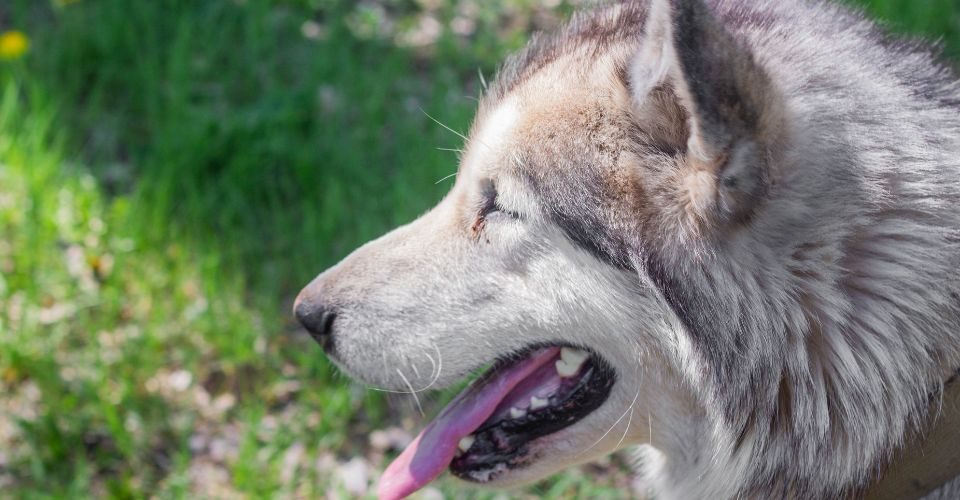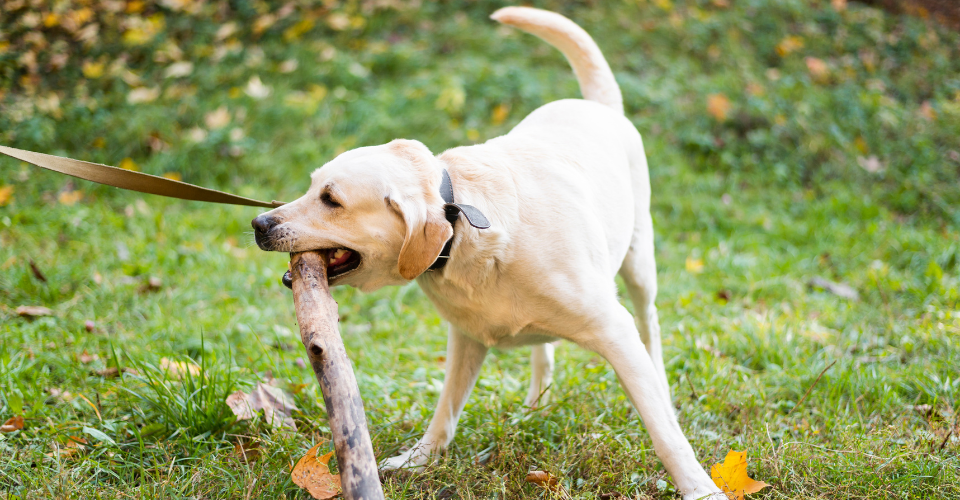Recently, I came across some interesting facts about the canine respiratory system. My favorites – those that amazed me the most – included the ability of dogs to breathe in and out simultaneously and their capability to sniff separately with only one nostril at a time.
Instantly, in my head, I pictured dog breathing to be spectacular and, perhaps, unerring – an imagination that was fueled by the fact that my own dogs, by chance, had never suffered any breathing difficulties in their lives.
But shortly after that, a friend of mine shared with me that her dog was breathing faster than normal. We took him to the vet, but the topic stuck in my head. “Why is my dog breathing fast?” is what I wanted to know.
Out of curiosity, I began researching the reasons and teamed up with Dr. Mehboob Ur Rehman to validate what I came by.
Here is what we gathered, but a disclaimer first: Occasional fast breathing is not problematic in dogs; it only becomes a concern if it persists and if your dog is breathing fast more often than usual.
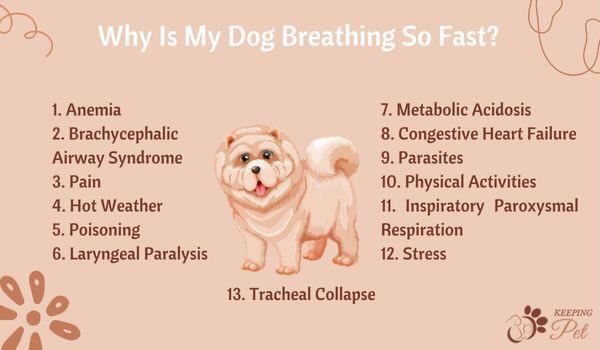
Why Is My Dog Breathing Fast?
Fast breathing or simply tachypnoea is caused due to several reasons in dogs, most of these associated with the respiratory system. Though these problems can occur in canines of all ages and breeds, those with shorter snouts, such as the American Bulldog, are more susceptible to these.
Other causes are related to the heart, activity levels, infections, and blood issues. Each of those is:
1. Anemia
Anemia refers to the reduction of red blood cells. Since these specific cells are vital for the transport of oxygen throughout the body, their insufficient amount can lead to difficulty in oxygen intake, leading to heavy breathing. Some breeds, including the Schnauzer, are more likely to suffer from this condition.
2. Brachycephalic Airway Syndrome
Brachycephalic Airway Syndrome (BAS) is an anatomy-related problem that occurs in brachycephalic dog breeds – those pooches that have short skull lengths, as opposed to long-nosed dogs. Shorter snouts push all the parts containing airways close together, making it difficult for the dogs to breathe.
Other signs such as gagging and vomiting may also occur, which can intensify when the weather is humid.
3. Congestive Heart Failure
When heart failure occurs, fluid and blood accumulate in the lungs as the heart is no longer pumping it properly throughout the body. Out of the pressure, the lungs become incapacitated to expand fully, resulting in prolonged coughing and difficulty in breathing.
Some dog breeds, including the Golden Retriever, are more prone to getting heart diseases resulting in complete failure.
4. Hot Weather
Heavy – frantic – panting and increased breathing are the foremost signs of overheating in dogs. For many reasons, from exercising a lot to infections, dogs can have their body temperature rise above 102 degrees Fahrenheit, which quickly escalates to serious health damage if the figure reaches 106.
5. Inspiratory Paroxysmal Respiration
Popularly known as reverse sneezing, it refers to a short-lived spasm that narrows the tracheal opening, making it hard to inhale in dogs and accelerating the breathing rate. It is a serious condition if it increases in frequency; otherwise, there is nothing to worry about though the dog might sound like he is honking.
6. Laryngeal Paralysis
In this condition, the larynx becomes dysfunctional, obstructing airways and reducing the ability to breathe effectively. The flap covering the trachea no longer moves, and breathing becomes problematic.
Eventually, dogs create sounds like honking, and the rate of breathing also increases.
7. Metabolic Acidosis
It is a problem in which the blood becomes acidic. Though kidney disorders and diabetes commonly cause it, it can lead to heavy breathing in dogs due to significant drops in the pH level. It is the body’s natural reaction; it expels more carbon dioxide to increase the pH.
8. Pain
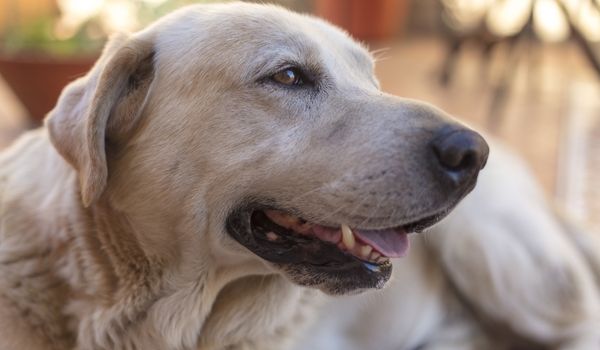
Dogs hide their pain to avoid looking weaker in the eyes of their predators. However, mastering this technique is not entirely possible, and some natural, subtle signs do show up in our furry pals. Panting and consecutive faster respiratory rates are some of those. If they linger on and a dog starts panting even at night, it could clearly indicate pain.
9. Parasites
Parasites, especially those that survive in the lungs, can cause breathing difficulties resulting in faster respiratory rates. Take ringworms and tapeworms, for instance. Unlike intestinal parasites, they find their abode in the lungs, causing several respiratory ailments.
10. Physical Activities
Just like human beings, dogs also feel tired when physically exhausted. When exercising, we need more oxygen for our worked-up muscles, and to cater to this need, our respiration rate increases naturally. The same is true for dogs. Temporarily, dog-tired pooches suffer from faster breathing.
11. Poisoning
Though dogs can eat human food for the most, some of the latter can cause trouble. Onions and garlic are among those. If consumed in large amounts for long, dogs can get anemia, leading to the loss of oxygen and heavy breathing.
Other signs like excessive salivation, vomiting, and diarrhea may also occur.
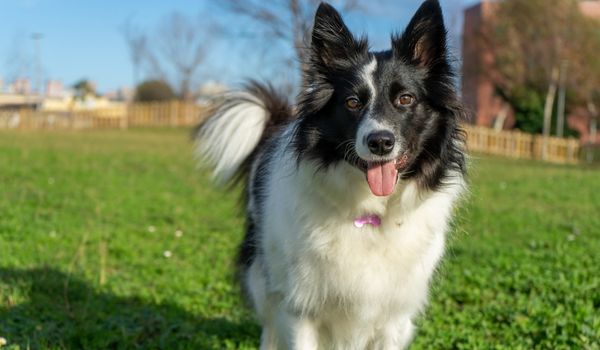
12. Stress
Mental stress can cause heavy breathing in dogs. But it could be a bit tricky to find for sure if stress is the culprit – other signs must also be there. For instance, an anxious dog must be aggressive, have incontinence, be visibly depressed, and bark even at nothing.
13. Tracheal Collapse
Unfortunately, some dogs – mostly teacup breeds – are susceptible to the weakening of tracheal cartilage rings, thus damaging the windpipe seriously. Though the affected dog might live for years, the problem becomes severe in the last stages and may also become irreparable.
Exerting greater force to breathe, dogs with tracheal collapse have an increased respiratory rate.
Why Is My Puppy Breathing Fast?
Your pup might be breathing fast due to the health issues discussed above. However, note that young pups are more prone to getting breathing problems because their immune and respiratory systems are not fully developed in that age group.
Therefore, we recommend consulting a vet at the earliest if you encounter any such issue in your puppy.
What Is Normal Respiratory Rate in Dogs?
Normally, healthy dogs breathe about 20 to 34 times a minute, and it is not forceful or problematic at all. Some sources contend that the respiratory rate up to 40 is also normal. However, it does not mean that a dog breathing at a rate more than that is necessarily suffering from tachypnea; it is recommended to contact a vet before reaching any conclusion.
What to Do if Your Dog Is Breathing Fast?
As discussed earlier, periodic fast breathing is not an issue; however, if your dog has had this problem for a long time, you need to contact a professional at your earliest. Meanwhile, you should try to find out what could be the reason behind the problem by looking at the list given above.
Note that if you see the following signs along with fast breathing in your pet, know that the matter might be serious:
- Blue or red gums.
- Different sounds coming out of the mouth.
- Excessive drooling.
- Heavy breathing, even when sleeping.
- Reduced movement, drinking, and eating.
- Stomach muscles are engaged during breathing.
What Will the Vet Do?
Once reached out, the vet will ask for the signs and experiences your dog has in detail. Afterward, the vet will go for a physical examination, such as checking the breathing rate. They might ask for a heart scan and other tests if necessary.
They will look for other signs as well that non-pros usually ignore, such as the changes in the color of gums. Moreover, oxygen will also be provided if your dog is in a serious state.
Once the examination is complete, they will ask you for admission either into the clinic or might discharge the pet after prescribing some medicine, depending upon the severity of the conditions.
How Much Will the Treatment Cost?
Depending upon the problem your dog is having, the treatment can range between USD 1,000 and 5,000 in terms of price. The lowest price tags are for uncomplicated issues such as onion poisoning, while the higher price tags are for severe problems such as heart failure.
The Treatment Is Expensive!
Treating fast breathing in dogs is costly. It is, therefore, in your best interest to get pet insurance for your furry pal.
Conclusion: Why Is My Dog Breathing Fast?
If your dog is persistently breathing fast, it can be due to several health problems related to lungs and respiration. However, in some cases, other reasons can also lead to the same problem – these include poisoning, blood-related issues, overheating, etc.
If faced with these problems, your dog should be taken to a vet as soon as possible to find and root out the basic cause. Depending upon the diagnosis, the treatment might carry a hefty price tag.

